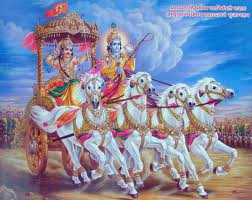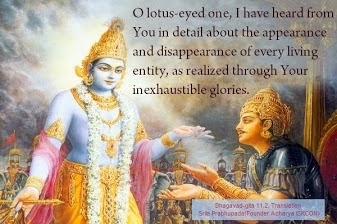Srimad Bhagavad-Gita :

Tuesday, Jan 28, 2013. Srimad Bhagavadgeeta : Chapter-6. ( Dyanayogam ) Slokam-5. Uddhared atmanatmanam natmanam avasadayet, Atmaiva hy atmano bandhur atmaiva ripur atmanah. Atmanam = The conditioned soul; Atmana uddharet = By the mind; one must deliver; Atmanam na avasadayet = The conditioned soul never put into degradation; Hi atma eva = Mind ( is) certainly, indeed a; Atmanah bandhuh = Friend of the conditioned soul; Atma eva atmanah ripuh = Certainly mind (is the ) enemy of the conditioned soul. Lift yourself up by yourself. Do not destroy yourself. You are your best friend if you master yourself. If not, you are your worst enemy. Only by constant endeavour with faith and determination is one able to detach themselves from ego sen


.jpg)


.jpg)